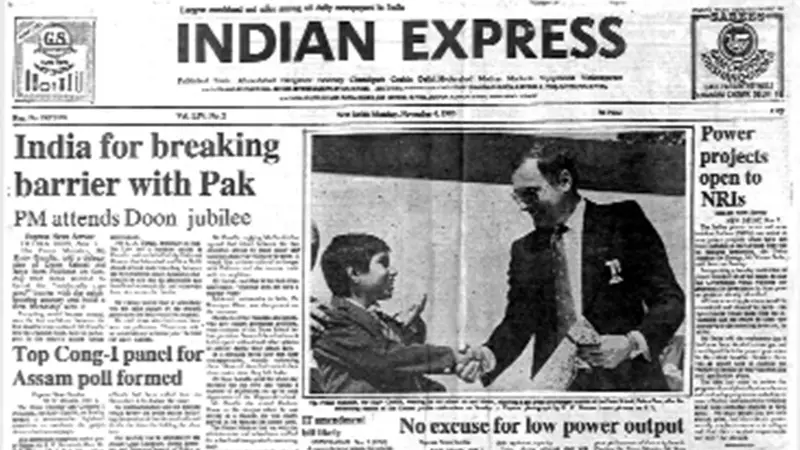
In a remarkable moment captured in history, former Prime Minister Rajiv Gandhi delivered a groundbreaking address to the young minds of Doon School on November 4, 1985. His words, spoken with the clarity of a new leader and the wisdom of a statesman, painted a compelling vision for India's relationship with its neighbor Pakistan.
The Young Prime Minister's Diplomatic Vision
Fresh into his tenure as India's sixth Prime Minister, Rajiv Gandhi chose an unconventional platform to articulate his foreign policy approach. Speaking to students at one of India's most prestigious institutions, he emphasized that dialogue, not confrontation, should define India-Pakistan relations.
"We believe in talking to our neighbors," Gandhi asserted, setting the tone for what would become a significant diplomatic philosophy. His words carried particular weight given his recent assumption of leadership following his mother Indira Gandhi's assassination just a year earlier.
Building Bridges Through Communication
The Prime Minister's address highlighted several key principles that would shape his approach to international relations:
- Open dialogue as foundation: Gandhi stressed that communication forms the bedrock of peaceful coexistence
- Youth engagement: His choice of audience signaled belief in the next generation's role in diplomacy
- Regional stability: He positioned India-Pakistan relations as crucial for South Asian peace
- Forward-looking approach: The speech emphasized moving beyond historical grievances
Historical Context and Significance
The 1985 address came at a pivotal moment in South Asian politics. India was navigating complex regional dynamics while establishing new leadership. Gandhi's message to the Doon School students reflected his government's commitment to redefining India's international relationships through peaceful means.
"The timing was significant," notes the historical record. "A young prime minister speaking to young students about building a new future with an old adversary."
Legacy of the Doon School Address
This speech remains relevant decades later as it captured essential truths about international diplomacy:
- Complex relationships require sustained engagement
- Educational institutions play crucial roles in shaping diplomatic discourse
- Youth perspectives matter in international relations
- Peaceful dialogue remains the most effective conflict resolution tool
Rajiv Gandhi's 1985 address stands as a testament to visionary leadership and the enduring power of diplomatic communication. His words continue to resonate in contemporary discussions about India-Pakistan relations and the broader South Asian political landscape.






